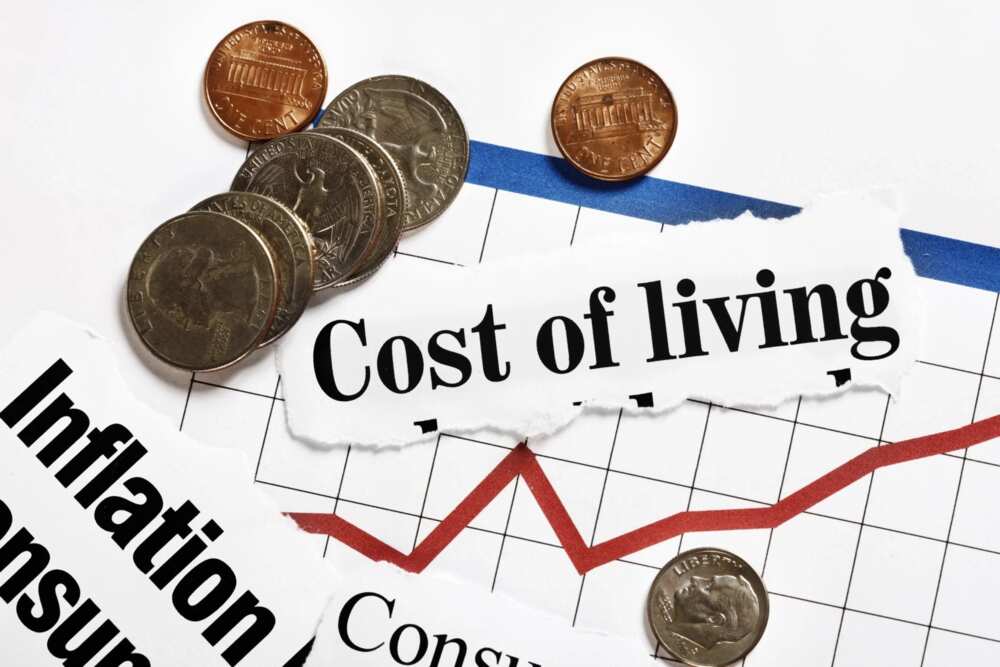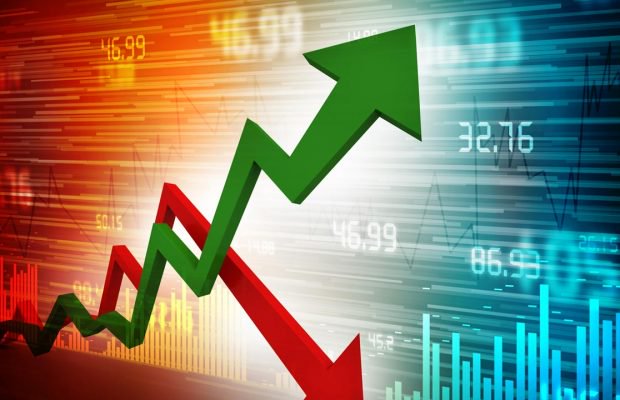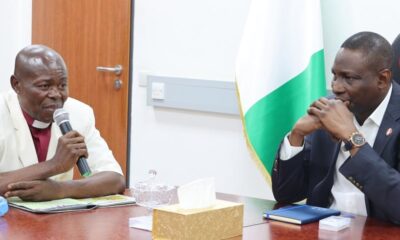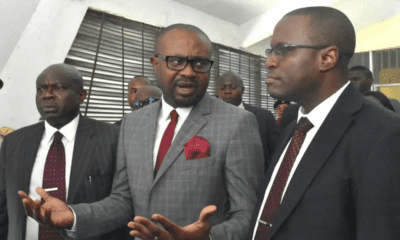Editorial
Corruption: Building accountability into Nigeria’s public sector
Corruption, no doubt, has become an household name for Nigeria. In its various forms, the ill has become a stench the Country has been known for, with malodorous perception which has sent signals of negativities in the international realm. Among comity of nations, the Country now ranks at the top of corruption ratings of various reckoning reports. Report of the 2021 Corruption Perception Index, (CPI) of the Civil Society Legislative Advocacy Centre (CISLAC) and Transparency International (TI) released in a January 2022, indicated that Nigeria ranked 154 out of 180 countries in the globe.
While the menace can no longer be isolated alone to the public sector, its grip within that sphere from where the scourge, (it is believed) zooms from, to permeate other fabrics of the society, remains too disturbing that discourse on same must never cease. The plight of the masses, recently, has gone too excruciating that the fight for sanity for what has made a country of plenty become where citizens are languishing in struggles of poverty, must be fought with continuous force till enough heat is generated for wanton and glutinous culture of corruption among public office holders begin to melt.
The records of laundering, among other forms of corruption devices, have been too expansive that the Country has suffered losses that have posed apparently irredeemable fractures. Up till now, unaccountable funds laundered abroad into foreign accounts remain unending in the effort to recover them. Several of these funds, unknown and untraceable, dwell in the limbo while struggles to recuperate the identified ones remain embedded with strings of conditions, some of which are entangled with bottlenecks.
The rigmarole of recuperating these funds nonetheless, more subjects of concern come to bear, particularly on how recuperated funds are utilised, since it remains indisputable that certain funds laundered have come to light with enough information to secure their recovery, be it those laundered abroad or those domestically laundered through dubious devices, but which tracking operations have revealed concrete evidence to guarantee and enforce their recovery.
The Federal Government, on Thursday, 11th August, 2022, had said it has recovered over N3.2billion (£6,324,627.66) of stolen funds from various jurisdictions globally from March 2021 to May 2022.
The Attorney-General of the Federation (AGF) and Minister of Justice, Abubakar Malami, disclosing this when he featured on the weekly ministerial briefing organised by the Presidential Communications Team, at the State House, Abuja, said that the government generated a total of N1.82 billion from the sale of bid forms and actual sale of forfeited properties in the first 18 months of the Buhari-led regime. He had also mentioned that an inter-ministerial committee on the audit and recovery of back years on stamp duty has so far recovered over N596million (N596,055,479.47).
While the disclosure is a good one, the thrust for accountability demands for more inquiries. Although the AGF had mentioned that the recovered foreign loots have since been disbursed into key infrastructure projects nationwide which include the Second Niger Bridge, Abuja-Kano Road and the Lagos-Ibadan expressway among others, the need for impact assessment for more detailed report is pertinent to give the reckoning frame of accountability more sense of the thrust of qualitative definition with the force of responsibility.
Nigeria increasingly has been woefully waned by the blows of corruption. The shrieking of its impacts have left perception of reproach on the Country. The profile of such stench on her internationally is gradually demeaning her status, substituting for the once glamorous accordance of repute with deforming attribution of spite.
The tag of corruption associated with the Country, if the political leaders haven’t taken note of, is one debilitating on its potential power as a nation, among others, in the world. Where the Country is weakened in perception, its potential power becomes underestimated and undermined.
Domestically, the impacts of corruption have only left the Country with myths of paradoxes. Songs of dirge have continued to permeate the nooks and crannies of the society as the scourge of unpalatable conditions of living keep waxing gross. The paradox of ‘living in poverty amidst plenty’ has become too pronounced, leaving nothing behind but lamentations.
It is deeply noteworthy that a sense of discontentment rising from the poor conditions, is gradually generating frustrations reflecting themselves in formations of aggressive rep representations in various forms. The signals are threats that must be looked into by the ruling class, majority of which have displayed flagrant insensitivity to rising flashes of resistances gradually showing forth with splashes of aggression.
In all parts of the Country, acrimonies standing on various grounds for claims of justification for actions of aggression have continued to take deep root continuously. Calls for self determination in the South-East, South-South, and much gradually rising in the South-West, have begun to take root. In the South-East, the reflection is growing into aggressive dimensions, which the government is finding difficult to tame. Just as the aggression of insurgency in the North started gradually to become an albatross, every threat has its potential to degenerate into same if the roots are not tackled. The pronounced profile of poverty in Northern Nigeria, no doubt, is known to have made an easy course for recruitments of disadvantaged persons into terror adventure. All, link back to the years of bad and distasteful governance, ridden with corruption which has deprived the Country of growth that would make good living conditions an ambience of the society for the thrust of development.
The contrary, other way round, has been the source for clusters of reactions becoming too turbulent, as confusions set in over conditions of living waxing gross. It is apparent that as the conditions wax more gross, the clusters of aggressions apparently reflecting in one form or the other as reactions to worsening conditions have been taking forceful grip on the Country. The need for the custodians of power in the Country to take a turn to the prevailing challenges is pertinent.
The culture of gluttonous selfishness which has taken grip on the disposition of public officers, a culture that has left the public sector ridden with corruption, is one endemic vulture devouring the Country’s fortune. In as much as the problem of corruption can be linked to this deforming culture, it is pertinent for the echelons of the public sector system, from the Federal Government to work concertedly with all stakeholders to harmoniously set the thrust to rejig the operating system of the Country’s public sector to take a reforming shape, such that the loosened holes condoling corruption are blocked. Such embrace demands structural reconstruction to redefine the system for institutional overhaul, to give the system a new orientation by frameworks that are automatically too virile and responsive than the subsisting order easily outplayed by opportunists who will not give a second thought to any chance to sap public funds.
Since the system is saturated with opportunists, who would always choose to occupy the space for selfish purposes to the detriment of the greatest number, only a systemic order to foreclose the cleavages that afford them the gap to exploit, would be the closest approach to block the ravaging vices of corruption which have not only worn on the Country a reproachful look, but has broken downdown its fabrics.
Editorial
Nigerians groan under high cost of living


Barely fourteen days to the first year anniversary of this federal government, Nigerians have continued to groan under high cost of living, amidst a catalogue of failed promises. Despite its chants of ‘Renewed Hope Agenda,’ a cup of garri/rice has since gone out of the reach of an average Nigerian. There is a continuous hike in fuel and other petroleum products. Transportation fares, local, inter-state or international are a no-go area. Nigerians have lost count of pledged dates for the commencement of operations or production of our refineries, especially Port Harcourt Refinery.
Most citizens have lost hope in the current political leadership in the country. Fuel today is being sold at between N800 to N950 per litre and still counting. A bottle of kerosene is about N2,000 and this an essential product being used by almost 90 percent of the population, especially the lower cadre. In the past, the colour of kerosene used to be like spring water from a rock, but today the product is sullied with impurities, its colour of kerosene almost like that of groundnut oil. Yet, it remains scarce and costly. What a country.
Nigeria is possibly the only country with abundant crude oil deposits that prefers to throw away the crude at giveaway price to other countries in the name of exportation, only to buy the refined products from the crude at exorbitant prices, in the name of importation. The first refinery in Port Harcourt was built about nine years after oil was discovered in commercial quantity in Oloibiri in 1956 in the present day Bayelsa State. And up till today there is no intentional attempt to rebuild it, or be religious in maintaining it.
The Naira debuted as the national currency of Nigeria, at 75K to $1, but today N1,500 is exchanging $1. Yet, we are ranked among the highest producers of oil and gas in the comity of nations. The unadulterated truth is this: Nigerians are suffering in the midst of plenty which should not be the case.
The poor leadership of the old brigade, who have held sway since independence, should leave the stage for younger generation. The current President of France, Emmanuel Macro is below forty years. The recent election in Senegal produced a 44-year-old man as president. Whether we like it or not, once a person passes retirement age of 60, his mental faculty starts dropping.
Inflation rate is now 33-35% in the country. Unemployment rate is soaring and the Federal Government had the gut to propose N48,000 as minimum wage for Nigerian workers, possibly as part of the ‘renewed hope agenda.’ This is as against N860,000 being proposed by the organised labour, comprising the Nigeria Labour Congress (NLC) and Trade Union Congress(TUC).
We are not surprised therefore when the organised labour walked out of the negotiation table and handed down a 14-day ultimatum to the Federal Government to think right.
We hope the federal government will really do all it needs to do to avoid another showdown with Nigerian workers who are like wounded lions and have been patient enough with the economic torture currently being experienced by workers in the country. We hope and pray that the tail of a sleeping tiger, will not be unnecessarily pulled. It could amount to unpleasant consequences. The government should fulfil its campaign promises and ensure peace and tranquility throughout the nation.
Editorial
Minimum wage Saga: FG, let the people go…


For years, the narrative has been the same — the economy withers and the common man cries out for reprieve, only to be met with an endless array of impediments. When it is time to intercede for the poor, Nigerians are met with pointless bureaucracy and palliatives. Foreign aid is rendered ineffectual thanks to the gauze-hand of leaders, through which it all slips through into an oblivion of their own invention.
In April 2024, the headline inflation rate rose to 33.69 percent, up from 33.20 percent in March 2024, marking an increase of 0.49 percent points according to the Nigeria Bureau of Statistics (NBS). Yet, to raise the minimum wage to a level that will help beat back hunger in the poorest families has become a problem for the government.
Per the International Monetary Fund, IMF, a determined and well-sequenced implementation of government’s policy intentions would pave the way for faster, more inclusive, resilient growth in Nigeria. Without reforms — such as raising the minimum wage — to enhance the business environment, improve security, implement key governance measures, develop human capital, boost agricultural productivity, Nigeria’s growth potential will never leave the realm of imagination.
“These reforms are crucial to boost investor confidence, unlock Nigeria’s growth potential and diversify the economy, and address food insecurity, and underpin sustainable job creation,” IMF noted in its recent report, adding that over the last decade, limited reforms, security challenges, weak growth and now high inflation had worsened poverty and food insecurity in Nigeria.
“While Nigeria swiftly exited the COVID-19 recession, per-capita income has stagnated. Real Gross Domestic Product (GDP) growth slowed to 2.9 percent in 2023, with weak agriculture and trade, and in spite of the improvement in oil production and financial services.
“Growth is projected at 3.3 per cent for 2024 as both oil and agriculture outputs are expected to improve with better security. The financial sector has remained stable, in spite of heightened risks. Food insecurity could worsen with further adverse shocks to agriculture or global food prices. Adverse shocks to oil production or prices would hit growth, the fiscal and external position, and exacerbate inflationary and exchange rate pressures,” the IMF said.
Yet, on Wednesday the pattern continued. Negotiations reached a deadlock due to the government’s perceived unwillingness to engage in fair discussions with Nigerian workers. The NLC National President, Joe Ajaero, in a sense is right to say that the government’s proposal of N48,000 as the new minimum wage is an insult to Nigerian workers.
It is no surprise that the labour unions are demanding a higher minimum wage to reflect the current economic realities and alleviate the suffering of Nigerian workers. The stalemate in negotiations may lead to industrial action, which could have far-reaching consequences for the economy.
Many labour in vain for decades for peanuts, only to be denied their pensions in old age. Of course, the Nigerian worker will down his tools in the face of great poverty, and seeming apathy from the government. The relationship between wage rate and employment is well established. Most revolutions throughout the world are dependent on the satiation of the labour force. The Federal Government should maintain an atmosphere of charity and responsibility. Like the Israelite Moses said millennial ago, let our people go.
Editorial
Inflation as major threat to life security


Millions of Nigerians are groaning because of the devastating inflationary pressure that is making it impossible for many to consume the minimum calories required for a healthy living.
It is known that Nigeria’s macroeconomic environment has become very harsh in its diminutive impact on the purchasing power at the disposal of the citizenry.
Many cannot also conveniently afford to transport themselves to their workplace or move around for routine activities.
Meanwhile, the price of other payment obligations for services such as house rents, school fees, utilities (including cable television), health and recreation services are rising on a daily basis.
This shows that the quality of life enjoyed by Nigerians is deteriorating as poverty becomes more pervasive and endemic.
According to official statistics, the November inflation rate was 14.89 percent and it is fast heading towards the 15 percent mark.
Meanwhile, the Rural inflationary pressure is also climbing as the rate climbed to 12.28 percent in July even when the price of Premium Motor Spirit and electricity tariff had not been hiked. Prices are just rising freely.
This applies to production inputs (except labour), consumer durable, agricultural products as well as services.
This unfortunately is the case irrespective of the basket of goods one uses as a measure outside the standard yardstick.
A close look at the policy framework of the government shows that the recent surge in general price level is not unconnected with structural bottlenecks, fiscal and monetary policies, deregulation, and trade policies as well as inefficiency on the part of regulatory agencies.
The government has for too long paid lip service towards unbundling of the shackles of growth and development such as poor budgetary implementation on capital projects, outdated laws and a toxic business environment that constrain the economy.
This has indeed, slowed down economic growth and resulted in shortage of goods and services and their attendant impact on inflation.
The government seems to be heating up the system by keeping its spending open-ended even as it cries of inadequacy of revenue to finance its expenditure obligations.
The disconnect between recurrent account, capital account and public debt operations is certainly having a destabilising effect on public finance operations of the country.
This has given rise to fiscal domination that describes the aggregative impact of the uncoordinated expenditure activities of all the governments in our strange three-tier federal arrangement.
It also appears that the Central Bank is losing sight of its inflation-targeting monetary policy which has been on its front burner for more than two decades now.
This is certainly not what the nation needs now when virtually all the macroeconomic variables are in disarray.
Here, attention of CBN must be called to its Naira management policy especially as it affects the regimented devaluation and depreciation which impact heavily on the domestic and external value of the currency.
The external value requires attention considering that the Nigerian economy carries a monolithic production base and import orientation.
The gross loss in the value of Naira is having a horrible impact on the life of Nigerians as misery and hopelessness characterise the daily songs of the lower income strata and whatever is left of the middle class.
It must be pointed out also that the government policy on agriculture in general and rice production appears to suffer a backlash.
Whereas local production has increased appreciably the farmers and agricultural marketers are engaging in exploitative pricing practice.
They simply jack up their prices arbitrarily. This is particularly the case with respect to rice where the price of the local varieties is at par with the foreign brands.
The recent increase in the price of premium motor spirit and electricity tariff have surely added more salt to the injury.
These two products are directly tied to production and distribution of goods and services and as such raising their individual prices simply translates to increasing the price of everything that is bought and sold in the open and underground economies.
Unfortunately, all these are happening when the nominal income of the average citizen has either stagnated or declined as the minimum wage has not been paid by many states of the federation.
The same is characterised by controversy in those states and some federal agencies that have implemented the new salary regime.
-
Finance4 months ago
Court orders Sen. Victor Umeh to repay N136m bank debt to AMCON
-



 Abuja Update3 months ago
Abuja Update3 months agoUNDP, FG partnership needed to achieve inclusion, equity- Minister
-
capital market2 years ago
Rt.briscoe, FBNH, Others halts negative performance of stock market
-
Abuja Update2 months ago
Banks drive stock market performance with N147bn gain
-



 Health1 month ago
Health1 month agoCapacity training will reduce migration of health workers- NPHCDA
-
Submission Guidelines4 months ago
CALL FOR SUBMISSIONS: POETRY COLUMN-NND
-



 Business4 weeks ago
Business4 weeks agoTingo Group unveils Tingo Electric, Tingo Cola drink at Lagos launch
-
News4 months ago
Oil thieves sponsoring malicious media campaign against Navy – Spokesman








